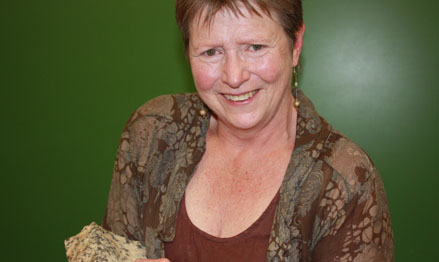Latest News Archive
Please select Category, Year, and then Month to display items
30 May 2025
|
Story Prof Mikateko Mathebula
|
Photo Supplied
 Pictured (from left to right): Prof Faith Mkwananzi, Dr Kapambwe Mwelwa, Prof Lochner Marais, Prof Chikumbutso Manthalu, and Prof Mikateko Mathebula.
Pictured (from left to right): Prof Faith Mkwananzi, Dr Kapambwe Mwelwa, Prof Lochner Marais, Prof Chikumbutso Manthalu, and Prof Mikateko Mathebula.
Through collaborative agreements with the University of Malawi and the University of Zambia, the University of the Free State (UFS) has established the Research Alliance for Higher Education in Africa (RAHEdA), a dynamic initiative aimed at enhancing research capacity and partnerships within Sub-Saharan Africa.
The collaborative agreements align with the UFS’s Vision 130 strategy in relation to internationalisation, emphasising the important role that intra-African mobility visits play in establishing relationships with universities on the continent. It also fosters knowledge exchange and engagement and allows for careful planning and strategy meetings.
“During these discussions, an ambitious but feasible roadmap was laid out for the next three to five years,” Prof Mkwananzi said. “These activities include online workshops for staff and postgraduate students at all partner institutions, and a new webinar series that focuses on profiling, advancing, and celebrating thought leaders, higher education scholars, and scholarship in Africa.”
The inaugural webinar was held on 21 May 2025. Speaker Prof Siseko Kumalo, Associate Professor at the University of Johannesburg’s Ali Mazrui Centre for Higher Education Studies, spoke on ‘Orality as the Bulwark of the Humanities?’, set the bar high for the webinar series through his compelling and original response to this timely question, as scholars around the world contemplate appropriate responses to the rise and influence of artificial intelligence in higher education teaching, learning, and assessment.
Funding to support RAHEdA has been generously provided by Prof Melanie Walker, Distinguished Professor and SARChI Chair in Higher Education and Human Development.
• For information on how to get involved and for updates on RAHEdA, please contact Prof Mikateko Mathebula at MathebulaM@ufs.ac.za
Prof Tredoux turns theories regarding the formation of metals on its head
2013-09-17
|
 |
|
Prof Marian Tredoux
17 September 2013 |
The latest research conducted by Prof Marian Tredoux of the Department of Geology, in collaboration with her research assistant Bianca Kennedy and their colleagues in Germany, placed established theories regarding how minerals of the platinum-group of elements are formed, under close scrutiny.
The article on this research of which Prof Tredoux is a co-author – ‘Noble metal nanoclusters and nanoparticles precede mineral formation in magmatic sulphide melts’ – was published in Nature Communications on 6 September 2013. It is an online journal for research of the highest quality in the fields of biological, physical and chemical sciences.
This study found that atoms of platinum and arsenic create nanoclusters, long before the mineral sperrylite can crystallise. Thus, the platinum does not occur as a primary sulphur compound. The research was conducted at the Steinmann Institute of the University of Bonn, Germany, as well as here in Bloemfontein.
Monetary support from Inkaba yeAfrica – a German-South African multidisciplinary and intercultural Earth Science collaborative of the National Research Foundation (NRF) – made this research possible. Studies are now also being conducted on other metals in the precious metal group, specifically palladium, rhodium and ruthenium.
The discovery of the nanoclusters and the combination with arsenic can have far-reaching consequences for the platinum mine industry, if it can be utilised to recover a greater amount of platinum ore and therefore less wastage ending up in mine dumps. This will signify optimal mining of a scarce and valuable metal, one of South Africa’s most important export products.
For Prof Tredoux, the research results also prove thoughts she already had some twenty years ago around the forming of platinum minerals. “Researchers laughed in my face, but the evidence had to wait for the development of technology to prove it.” Young researchers were very excited at recent congresses about the findings, since the new models can bring new insights.
“Chemistry researchers have been talking about platinum element clusters in watery environments for quite a while, but it was thought that these would not appear in magmas (molten rock) due to the high temperatures (>1 000 degrees celsius).”
Prof Tredoux has already delivered lectures at congresses in Scotland, Hungary, Sweden and Italy on this research.
Read the article at: http://www.nature.com/ncomms/2013/130906/ncomms3405/full/ncomms3405.html